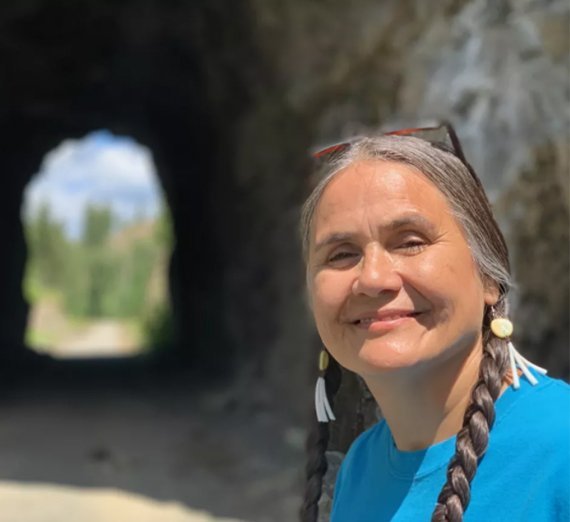Indigenous Responsibility in Today’s World
Shelly Boyd - Woman Of The Year - Native Activist
As members of the global community, we have a shared responsibility to protect and preserve our planet. Indigenous peoples have long recognized this responsibility, as their relationship with the land is deeply interconnected with their cultural identity and way of life. Today, more than ever, it is critical that we learn from and support Indigenous peoples in their efforts to protect the earth and ensure a sustainable future for all.
The Importance of Indigenous Knowledge
Indigenous knowledge is a valuable resource that has been developed over thousands of years. It is a way of understanding the world that is based on the interconnectedness of all things, and it recognizes the importance of maintaining a balance between humans and nature. This knowledge is often passed down through oral traditions, and it is closely tied to the land, as it reflects the specific environmental conditions and cultural practices of a particular region.
In today's world, Indigenous knowledge is more important than ever. As we face environmental challenges such as climate change, we need to draw on this knowledge to find sustainable solutions. Indigenous peoples have a deep understanding of the natural world and its cycles, and their traditional practices often provide examples of how to live in harmony with the environment.
Supporting Indigenous Communities
To truly honor the responsibility that we share as members of the global community, we must support Indigenous communities in their efforts to protect their land and preserve their culture. This includes recognizing and respecting their sovereignty, and working to address the historical injustices that have been committed against them.
One way to support Indigenous communities is to learn from their traditional knowledge and practices. This can include participating in cultural exchange programs, supporting Indigenous-led conservation efforts, and incorporating Indigenous knowledge into environmental management plans.
We can also support Indigenous communities by advocating for their rights and supporting Indigenous-led movements for social and environmental justice. This includes supporting efforts to protect Indigenous lands and waters from exploitation and pollution, as well as supporting the revitalization of Indigenous languages and cultural practices.
Taking Action for a Sustainable Future
As individuals, we all have a role to play in protecting the earth and ensuring a sustainable future for all. This includes taking action to reduce our own impact on the environment, as well as advocating for policies and practices that support sustainability.
By supporting Indigenous communities and learning from their traditional knowledge, we can work together to find solutions to the environmental challenges that we face. We can also work to build a more just and equitable world, one that recognizes and respects the rights and sovereignty of Indigenous peoples.
Conclusion
Indigenous responsibility in today's world is a critical issue that must be addressed if we are to protect the earth and ensure a sustainable future for all. By supporting Indigenous communities and learning from their traditional knowledge, we can work together to find solutions to the environmental challenges that we face. We must recognize and respect the sovereignty of Indigenous peoples and work to address the historical injustices that have been committed against them. Only by working together can we create a world that is just, equitable, and sustainable for all.
Want to Learn More?
Take a listen to an episode of our Reservation Redemption podcast in which we had the honor of speaking with Shelley Boyd, who is an esteemed Colville tribe and Sinixt activist as well as a cultural leader dedicated to advancing Native rights. Our conversation centered on the crucial role of indigenous responsibility in the modern world.
As a Native American activist, Shelley Boyd emphasizes the importance of recognizing and embracing the concept of indigenous responsibility. She spoke about the unique connection between Native peoples and the land, and how this relationship carries with it a great responsibility to care for and protect the environment.
You can listen to more episodes of Reservation Redemption on Spotify, Apple Podcasts, and YouTube.


